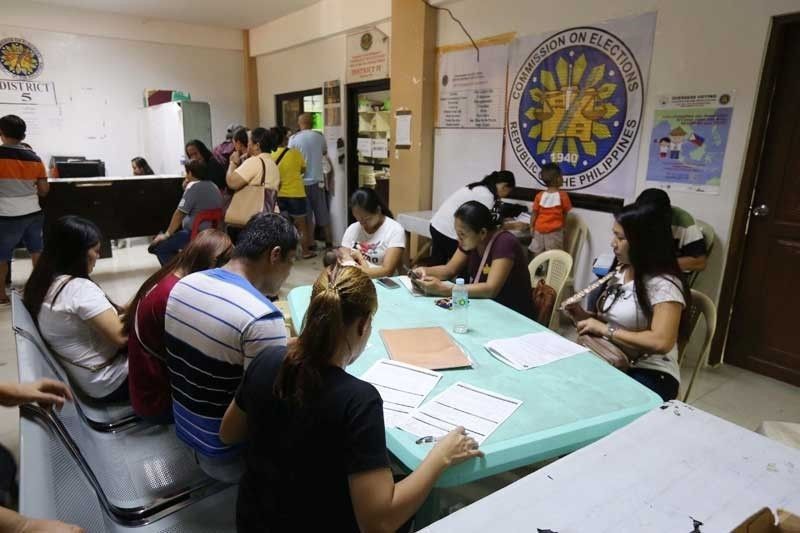Commentary: How citizens can participate in 2019 elections

Within the next few months, the streets, television and social media will be filled with political posters and advertisements of candidates running for different positions. Every three years, we elect local and legislative officials, and although the midterm elections do not garner as much fanfare as the presidential ones, they still serve as an important junction to direct the future of the government and country.
Held on the second Monday of May, elections often seem like a taxing event. For the government, it requires months of preparation and planning, billions of pesos, and an army of officers and volunteers to ensure its execution and sanctity.
Voters, on the other hand, are bombarded by political advertisements, traffic caused by events, and activities enacted by supporters. On the part of the candidates, they require a string of tours around their localities—or the country for national positions—millions, if not billions, in funding, and an effective team of strategists, marketers, and campaigners with the know-how to maneuver the dark alleys of elections.
The prevalence of corruption during elections is no secret and the cost of running in elections is high. On the surface, these cover salaries, travel expenses, advertising, paraphernalia and events. Digging deeper, candidates must also allocate money for security teams, handouts and other operations, not to mention, vote buying.
However, as proven by big but unsuccessful presidential campaigns in the past, money alone does not ensure a win. A candidate also needs the political machinery to support his bid.
Recently, the Commission on Elections announced that political dynasties have increased in the country despite the anti-political dynasty provision in the 1987 Constitution. This is unsurprising considering the network one needs to win and build in each election and term of office. These dynasties have successfully engaged and maintained patronage politics with their constituents for decades.
The prevalence of political dynasties also provokes the problem of political violence. Some may ask “Why bother at all?” with the incredulous amount of money being spent, the disappointingly high number of deaths, and the reelection of the same names over and over again. It is easy to give in to the melancholy of politics and doubt the abilities one has to change the situation.
Yet this is exactly the opportunity elections provide. At the end of the day, elected officials are representatives of the people. They should espouse the principles and values of their electorates. Therefore, elections allow citizens to select those that they believe will be beneficial for the country.
While this may seem difficult to do with the current personality-driven politics, it is part of our duties and rights as citizens to demand for issue-based discussions.
Despite what seems to be a clamor, or at least openness, to authoritarianism in recent years, a survey conducted by Social Weather Stations last September revealed that 84 percent are satisfied with the way democracy works in the country, only two notches lower than the all-time high record in 2010.
In the same survey, 59 percent of the respondents stated that “democracy is always preferable to any other kind of government" while only 20 percent claimed that "under some circumstances, an authoritarian government can be preferable to a democratic one."
With this support for democracy, people can work on improving their own brand through political participation to become one that truly works for the better of the people.
Elections serve as a prime opportunity to correct the mistakes of past governments. Corrupt practices usually begin at elections as the desperation to win takes hold of the candidates. Therefore, to cut it at its roots, people need to select the right officials and demand for better practices.
During the barangay elections held earlier this year, the Comelec identified nearly 20 million youth voters. A solid youth vote can easily select their preferences for national positions.
Democracy Watch launched its Youth Alliance earlier this month. It is a consortium of youth leaders from different universities which will host forums on voter education and debates. Public participation begins at informing, proceeds to consulting, continues to involving, then to collaborating, before ending with empowerment. Therefore, through these forums, the public hope to assist the youth in beginning their journey as proactive members of society.
And although people may have different choices or ways to choose our candidates, they all have one thing in common: the ability to participate and contribute to a bigger cause, that of being co-authors of our nation’s future.
Claudette Guevara is Deputy Executive Director for Programs of Stratbase ADR Institute and Secretary General of Democracy Watch Philippines.
- Latest





























